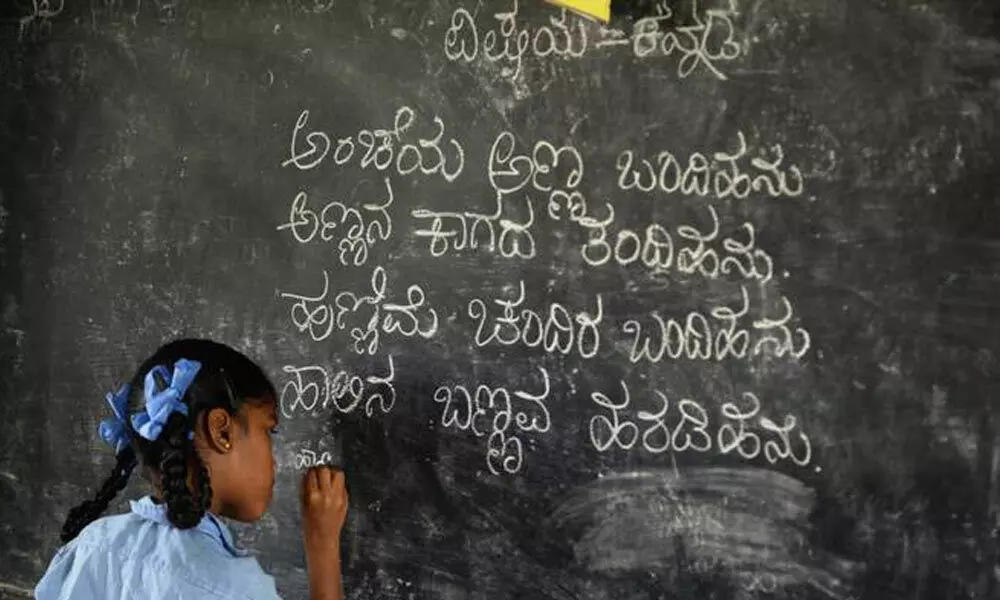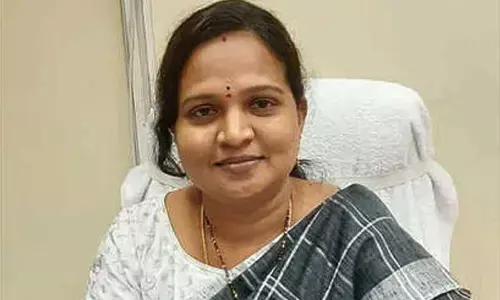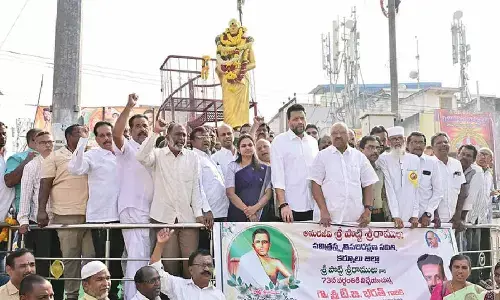10-Year-Old Petitioner From Bengaluru Reached High Court Questioning The Lawmaking Kannada As Mandatory

A file photo of Government Higher Primary School at Doddakallahalli in Malur.
- A 10-year-old student, Keertan Suresh, of Bishop Cotton Boys' School in Bengaluru, in Class IV at a CBSE/ICSE school has petitioned the High Court of Karnataka, challenging the constitutionality of the law of the Kannada Language Learning (KLL) Act, 2015
- The petition was heard by Justice R. Devdas, who directed the State government to be served with notice.
A 10-year-old student, Keertan Suresh, of Bishop Cotton Boys' School in Bengaluru, in Class IV at a CBSE/ICSE school has petitioned the High Court of Karnataka, challenging the constitutionality of the law of the Kannada Language Learning (KLL) Act, 2015, that tends to end up making Kannada obligatory as a first or second language from Class I to X starting in the 2015-16 academic year. The KLL Act, 2015 has been described as 'ex facie harsh, draconian, discriminatory, and violative of the Constitution of India.
The petition was heard by Justice R. Devdas, who directed the State government to be served with notice. The case was filed when school officials informed parents that, due to government directives, Kannada must now be taught as a second language. The court has indeed been asked to stop the State government from enforcing the KLL Act, 2015, at schools that are affiliated with the CBSE/ICSE streams. The petitioner's school is part of the ICSE (Indian School Certificate Examination) stream, which is controlled by the Council for such Indian School Certificate Examination. The petitioner also argued that the KLL Act was in conflict with the Karnataka Education Act of 1983, which delegated curriculum regulation to the relevant boards, whether CBSE or ICSE.
The petition claimed that the KLL Act is disproportionate and creates extra difficulty and stress on the petitioner,as well as enforces unjustified limits on their rights under Articles 19 and 30 of the Constitution.








